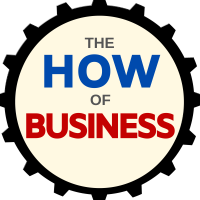Buying a Small Business with Carl Allen.
Buying a Small Business with Carl Allen, an entrepreneur, investor, and corporate deal maker. He shares his experiences in the corporate world, transitioning to entrepreneurship, and the reasons to consider buying an existing small business instead of building one.

Carl is an entrepreneur, investor, and corporate dealmaker who has worked on transactions worth over $50 billion, which includes over 250 acquisitions and sales, together with more than 100 capital fund raising projects. In a 24-year career, Carl has analyzed thousands of businesses, big and small, in 17
different countries and across nearly every business sector.
Carl has a solid reputation as an investor and corporate dealmaker, having worked for Bank of America, Hewlett-Packard, Forrester, and Gartner. He has advised some of the world’s largest corporations on investments, acquisitions, disposals, and restructuring.
Carl has also assisted hundreds of business owners in raising both equity and debt financing. Carl walks the talk, having acquired and sold numerous businesses for himself. He is one of the world’s premier experts on buying and financing small business acquisitions and coaches more than 700 entrepreneurs all over the world to buy small businesses rather than starting new ones.
Carl lives in England.
Carl and Henry Lopez, host of The How of Business podcast, discuss strategies and tips for buying a small business.
Resources:
Books mentioned in this episode:
[We receive commissions for purchases made through these links (more info)].
Other Podcast Episodes:
You can find other episodes of The How of Business podcast, the best small business podcast, on our Archives page.
More About Buying a Small Business:
Buying an existing small business can offer several advantages over starting a business from scratch. Here are some reasons why you might consider buying an existing small business:
1. Established Brand and Customer Base: Buying an existing business means acquiring an established brand name, reputation, and customer base. This can save you significant time and effort in building brand awareness and attracting customers. With an existing customer base, you can generate revenue from day one and benefit from the loyalty and relationships already established.
2. Proven Business Model: When you buy an existing business, you acquire a proven business model that has demonstrated its viability and potential for success. The business has already gone through the trial-and-error phase of refining its operations, marketing strategies, and revenue streams. This reduces the risk associated with starting a new venture and gives you a clearer picture of what to expect.
3. Established Systems and Processes: An existing business typically has established systems, processes, and operational procedures in place. This includes inventory management, supplier relationships, employee training, and financial systems. These existing systems can save you time and resources, allowing you to focus on refining and improving the business rather than starting from scratch.
4. Immediate Cash Flow: Unlike a startup, an existing business is likely to have an established cash flow. You can review the financial records and evaluate the business’s profitability before making a purchase decision. This provides more clarity and stability compared to the uncertainty of generating revenue in the early stages of a new business.
5. Existing Relationships and Networks: An established business often has relationships with suppliers, vendors, and other industry stakeholders. By acquiring the business, you gain access to these existing relationships, which can be valuable in terms of securing favorable terms, leveraging partnerships, and accessing industry knowledge and resources.
6. Trained Employees: Buying an existing business means inheriting a trained and experienced workforce. This can save you time and effort in hiring and training employees from scratch. The existing employees can bring their expertise and contribute to the continuity and growth of the business.
7. Financing and Track Record: Obtaining financing for an existing business can be easier compared to financing a startup. Financial institutions and investors are often more willing to provide funding when there is a track record of revenue and profitability. Additionally, an established business may have existing assets, such as equipment or property, which can be used as collateral.
However, it’s important to conduct thorough due diligence when buying an existing business. Assess the business’s financial health, reputation, legal obligations, and potential risks before making a purchase decision. Engaging professionals, such as lawyers and accountants, can help ensure a smooth and informed acquisition process.
Ultimately, the decision to buy an existing business or start your own depends on your individual circumstances, risk tolerance, and entrepreneurial goals. Consider your resources, expertise, and the specific industry and market conditions when weighing the pros and cons of each option.



